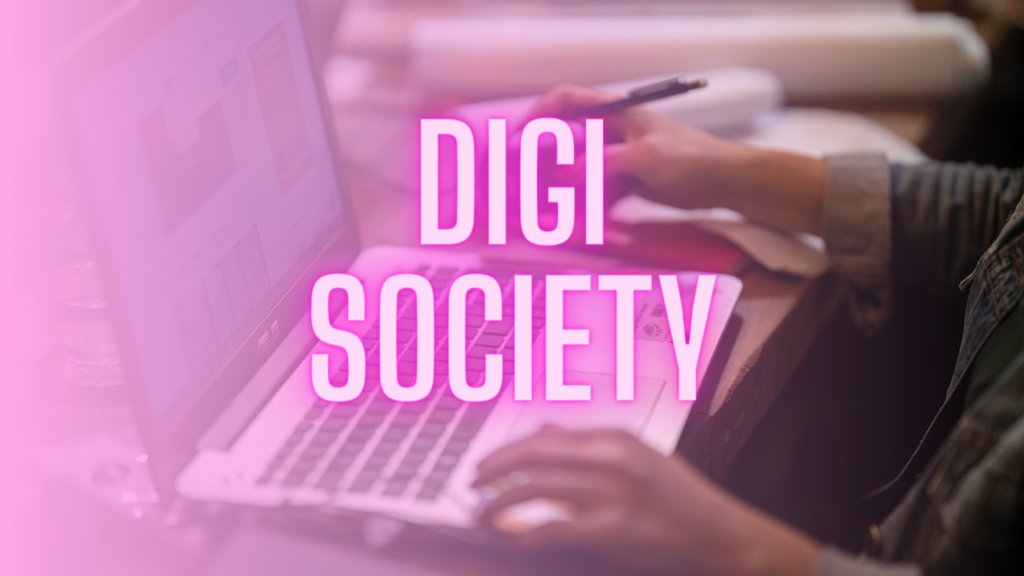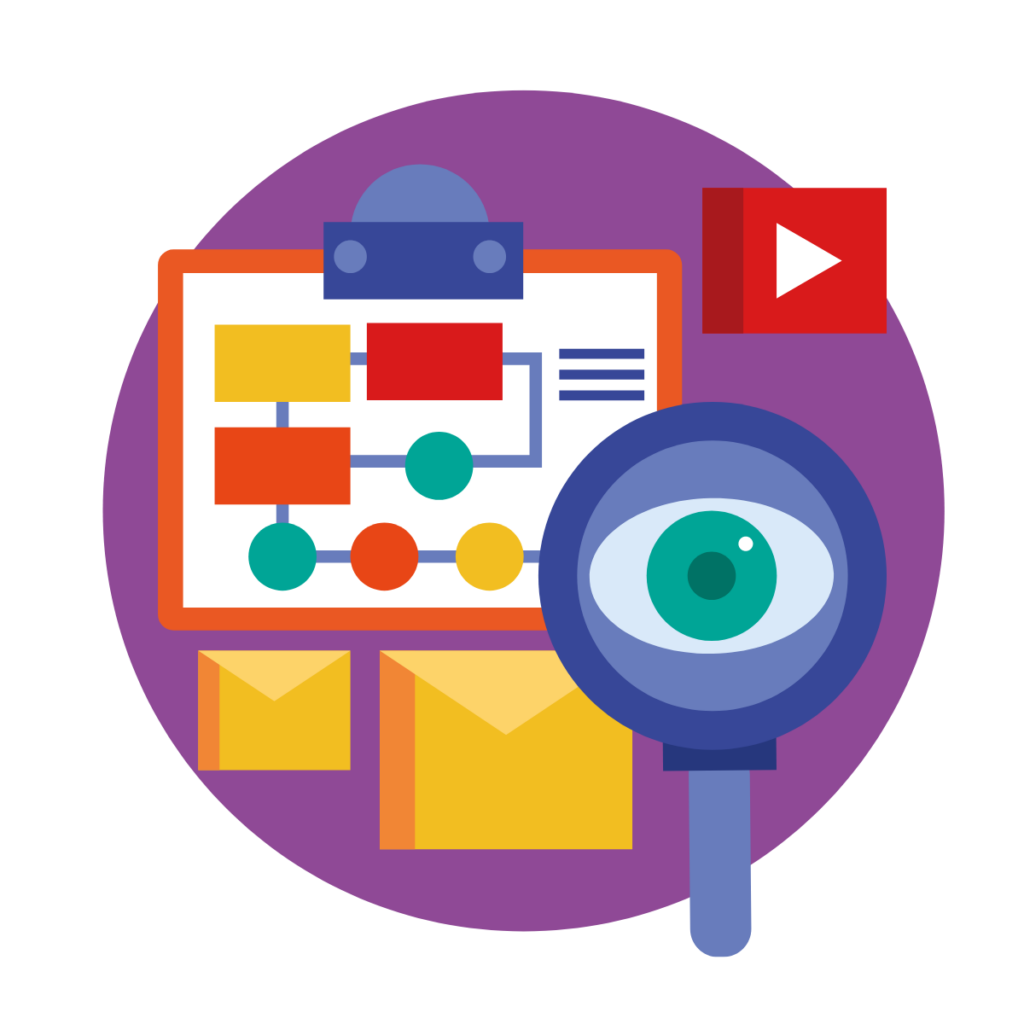
Welcome to the first part of my DWE-course blog! On this page I’m talking about Digitalization from the perspective of marketing and communications. How important digitalization is and has been in marketing? What do I think will happen in the future? What are the risks of an open digital society? Will the GDPR help us feel safer?
So many questions – let’s talk and get some answers!
Digitalization in my own field of expertise – and my future ideas
Digitalization has ruled and dictated the new trends on marketing and communications for decades already. Numerous new social media platorms, publishing and automation apps and new tools and A.I. based innovations are being created as we speak and sometimes it’s hard to keep track of all the new existing (and exciting) possibilities.
The ever-evolving technology has also given us the option to work remote from home, or from different countries and different time zones. When everything can be done online, new doors with new opportunities are open. The whole world opens. But if we only work from home will we wilt without human connection? Can we create strong connections and actually get to know each other and work together remotely?
I work as a marketing and communications coordinator for a company that offers occupational health care and organizational development services such as leadership and work ability consultation. I think it also goes without saying, that digitalisation has affected the medical field and consulting field as well and can be seen in my everyday work. –> Most of our clients contact us via digital channels such as e-mail, virtual chats and web forms.
But in this little blog I’ll be talking about digitalization from the perspective of marketing and communications.
I find digital / virtual communications rather exciting. It gives us opportunities to express ourselves in ways where imagination is the limit. One of the common argumets in digital communication is “how it lacks real connection and/or humanity“.
I always like to remind people, that it is in fact US HUMANS who create this virtual content and are behind the computers to get the message across. It is possible to show sincere emotion and create strong bonds and connections through digital networks and channels too. It’s just up to us how we want to execute and deliver it: what words we choose to use? What messages do we want our visuals and symbols to deliver? Can we actually practice what we preach?
How digitalization will change life and work in the future?
How I’ll conduct my job in the future is pretty much dictated on the evolution of digitalisation and the new laws surrounding it. Even though I do think we are moving a little bit too fast with this digital revolution, I also see opportunities.
1. Data Collecting and Privacy
I have had problems being ok with data collection and I’m happy to notice decisionmakers have paid more attention to this in the recent years. I believe in the future the laws on data privacy will be even more regulated and these guidelines will be easier to a.) remember / decipher and b.) put into use ethically. I know data is a valuable tool in marketing and communications and can offer us very important information, but I’m not opposed to creating that kind of marketing where people’s personal data isn’t needed.
2. Treating AI as a tool – not as a king
A.I. this and A.I. that. Let’s face it, A.I. (Artificial intelligence) and A.I. generated apps / tools are here to stay – and people like to use them as well as explore the countless opportunities they offer.
Many also fear that especially A.I. will steal marketers’ and copywriters’ jobs. This is definitely not the case. Even though A.I. can produce pretty decent ideas and readable text, it still lacks the human emotion. Therefore I’d like companies to give their employess training on using AI as a tool that can push you forward and maybe even challenge your thinking by offering you solutions and ideas. After that it’s your job to take these ideas and put your own thoughts – the human – in there.
3. Automation tools
One of the things that causes grey hairs in my work is creating automations and finding proper automation tools to decrease the amount of manual work and freeing up more time for creativity and thinking. In the future I’d like to see more intuitive automation tools from work flow management and social media schdeduling to even helping us keep track on the ongoing marketing campaigns as well as the legal aspects data collection and updated privacy policies.
4. Personal life
As digitalization evolves and new opportunities arise, it would be silly to think it wouldn’t affect on one’s personal life. I think remote work will become more and more acceptable and regular as most services are shifting from face-to-face to online and with the help of different automation tools an intuitive AI – most services can be provided around the clock.
As the majority of my life already is pretty virtual, I still am litte concerned about the increased amount of data breaches and phishing attempts. Which I’m discussing more in the following paragraph.

The Risks of Open Digital Society – is GDPR our knight in shiny armour?
As wonderful as life is with all the digital solutions and the opportunities digitalization offers – there are of course many risks. People are becoming intimidatingly skilled at utilizing technology – not only for good but also for bad – and this is something we need to stay vigilant with. Cyber security threats and crimes are already common, people encounter daily phishing attempts and you can never be entirely sure your personal data is safe.
I do think that it was necessary for EU to start regulating the usage and the processing of the data of individuals. The GDPR gives individuals more control over their personal data but also dictates what I, for example, as a marketer have to obtain complete consent from individuals before I can send them any marketing communications and have to offer absolute transparency on how we collect and process this data.
The General Data Protection Regulation (GDPR) is the toughest privacy and security law in the world. Though it was drafted and passed by the European Union (EU), it imposes obligations onto organizations anywhere, so long as they target or collect data related to people in the EU. The regulation was put into effect on May 25, 2018. The GDPR will levy harsh fines against those who violate its privacy and security standards, with penalties reaching into the tens of millions of euros.
https://gdpr.eu/what-is-gdpr/
Even though the pros exceed the amount of “cons”, the GDPR isn’t still the solution to all our cyber and data safety concerns and can make things complicated both for service providers and their customers. As service providers need to be transparent with their data policies this can lead to lengthy and complicated consent forms, companies may need to hire GDPR or other data protecting experts and might even have to renew or even create their processes from scratch which can become expensive especially for smaller companies.
Self-evaluation: Not as digi-savvy as I thought – a humbling realization
Having born in the 90’s I’ve lived through a major digital revolution. I’ve got to grow up in an era where digital tools and technology have been the rule rather than the exception. Ever since I got my first MP3 player or my first “music phone” – technology has been something I can’t live without.
I can use new apps, immediately familiarize myself with new phones, tablets and laptops and can set up Wi-Fi and other solutions for myself (and for my family). I use a variety of different digital tools in my daily work and have used since I first started studying in Savonia in 2010.
That’s why I think I’ve become a little arrogant with technology: I think I know it all. But as technology and digitalization keep on evolving, I’ve got to admit – I don’t know it all and I need to keep up.
What should I know more about?
- I definitely need to brighten my knowledge on the GDPR and all the matters around it – how it affects my daily life and work and how to stay up to date on the latest regulations and policies.
- Rules and regulations of marketing automations and the usage of AI – The more I use different automation and/or AI based tools, the more I need to be able to recognize possible risks and to understand the science around it with more depth.
- Cyber security threats: This is an issue that worries me both in my professional role and private life. How do we ensure that all the important documents, passwords, messages, and other necessary information stay safe and cannot be breached.
Blogs I left a comment on:
Digi society
https://eemi45.wordpress.com/digi-society/comment-page-1/?unapproved=3&moderation-hash=d35716c4e7a3d79469e3a5325e2da95c#comment-3